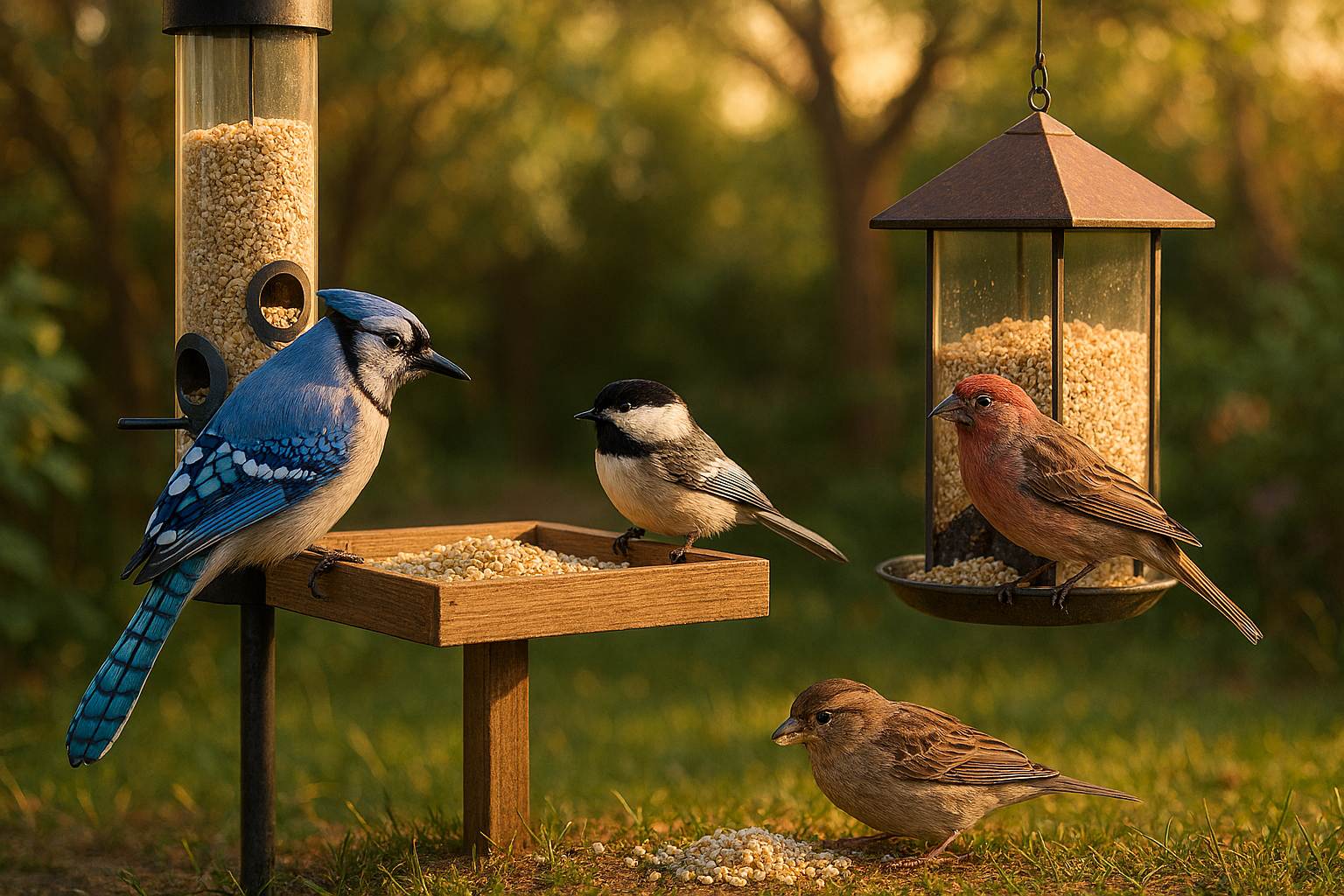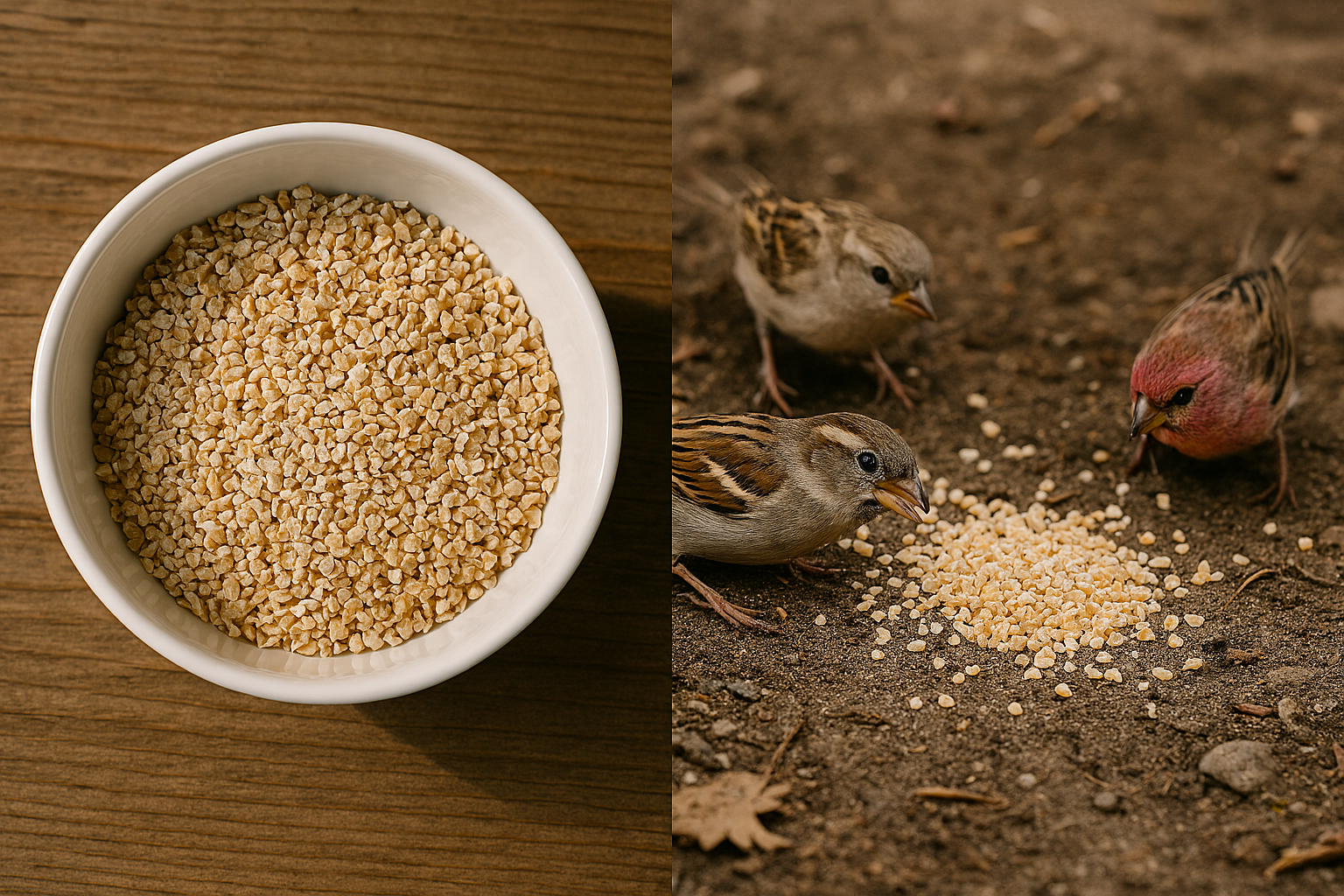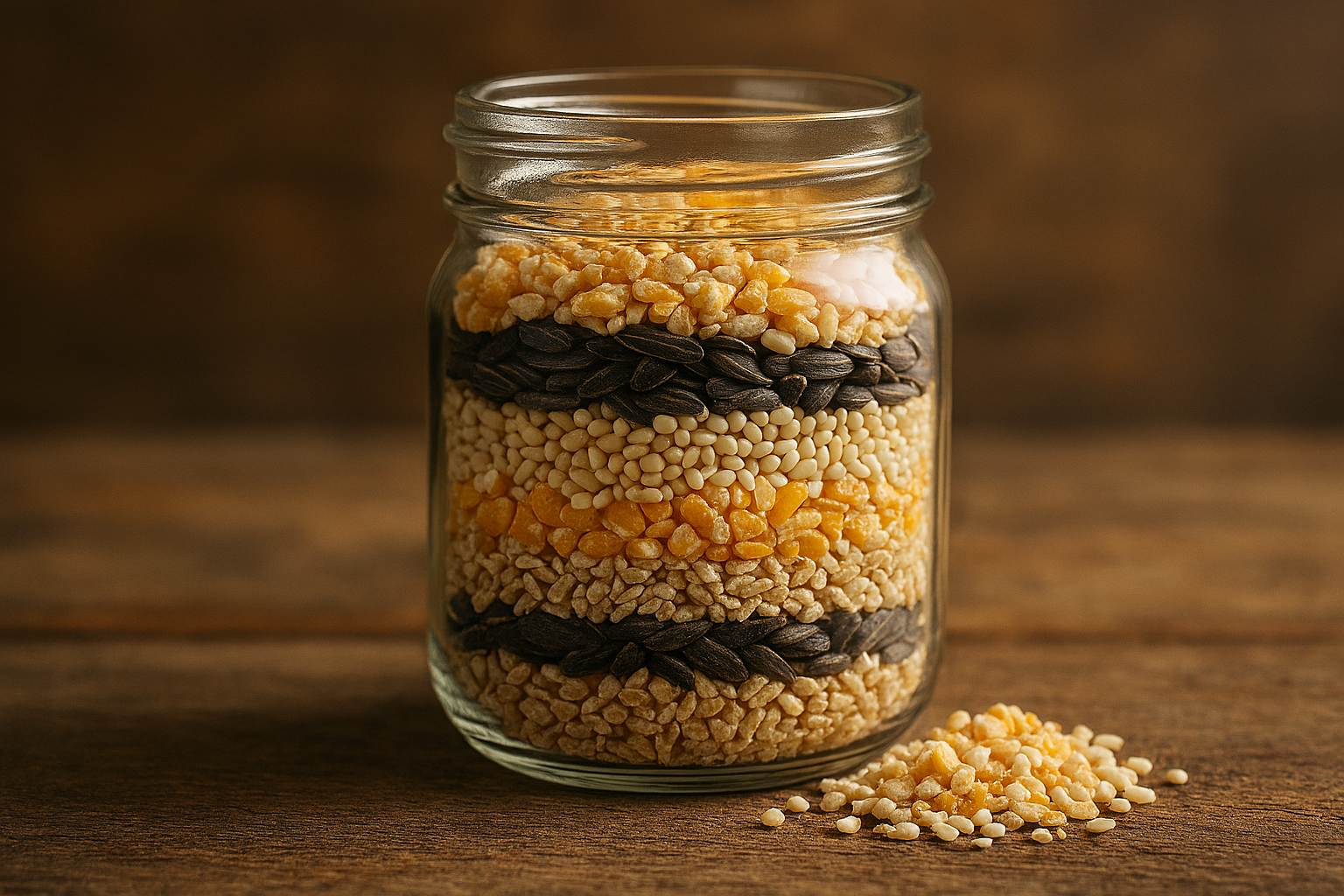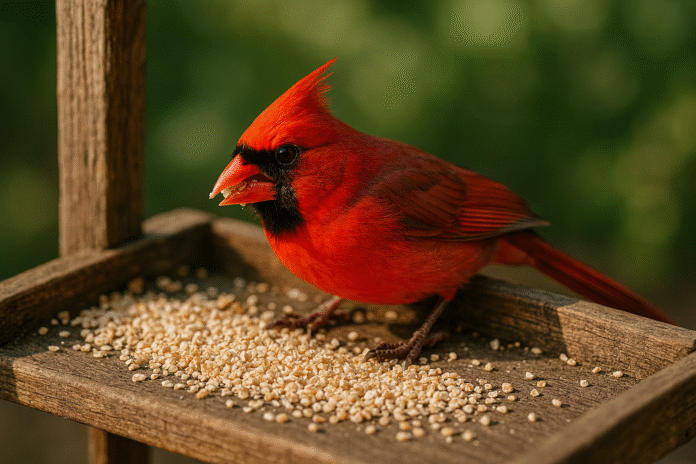I started wondering about this when I was making my morning oatmeal and noticed a cardinal sitting right outside my kitchen window. Had a whole container of steel cut oats sitting there, and it got me thinking – could I share these with my feathered buddies?
Turns out, yes! Birds absolutely can eat steel cut oats, and many of them really love them. I’ve been tossing them out for about three years now, and I’ve learned quite a bit about what works and what doesn’t.
Why Steel Cut Oats Work So Well for Birds

Here’s the thing about steel cut oats – they’re basically just chopped up whole oats. No fancy processing, no weird additives. Birds in the wild already munch on grass seeds and grains all the time, so this is right up their alley.
My cardinals go crazy for them. So do the blue jays, though honestly, blue jays will eat pretty much anything. I’ve watched chickadees grab pieces and fly off to stash them somewhere, and the woodpeckers seem to really appreciate having something substantial to work with.
The nuthatches are funny – they’ll take a piece of steel cut oat and wedge it into tree bark, then hammer away at it. Guess it’s like their version of a snack that keeps them busy.
What Birds Actually Eat These Things?

Most of the regular backyard birds will try steel cut oats if you put them out. Cardinals and jays are definitely the biggest fans in my yard. Finches will nibble on smaller pieces, and sparrows love them scattered on the ground.
I’ve noticed that birds who usually eat larger seeds tend to prefer steel cut oats over the smaller songbirds. Makes sense when you think about it – a tiny chickadee has to work harder to manage a chunk of steel cut oat than a cardinal does.
Ground feeders are your best bet. Juncos, towhees, and sparrows will clean up anything that falls from the feeders. Sometimes I just scatter oats directly on a bare patch of ground, and it’s gone within hours.
Do You Need to Cook Them First?
Nope! I just dump them straight from the container. Been doing this for years and never had any problems. Birds have been eating raw grains forever – their digestive systems can handle it just fine.
That said, I did try cooking them once during a particularly cold winter. Figured the birds might appreciate something warm. They ate them, but honestly didn’t seem any more excited than usual. Plus it was a pain to cook them plain (no salt, no sugar, nothing) and then wait for them to cool down.
Some people soak them in water for a few hours to soften them up a bit. I tried this too, but didn’t notice much difference in how eagerly the birds ate them. Now I just keep it simple.
Are Steel Cut Oats Better Than Regular Oats?
I’ve tried different types, and steel cut definitely work better than the instant stuff. Those instant oats get all mushy when it rains, and they often have added salt or sugar that’s not good for birds.
Regular rolled oats work fine too, but they tend to get soggy faster. Steel cut oats hold up better in the weather, which is nice because I’m not great at remembering to clean out my feeders every single day.
Never use the flavored instant oatmeal packets. All that sugar and artificial stuff is bad news for birds.
What About Dogs and Other Pets?
Since we’re talking about oats, figured I’d mention this. My dog definitely tries to get in on the action when I’m filling feeders. Plain cooked steel cut oats are actually fine for dogs in small amounts. I sometimes add a spoonful to my dog’s food when she’s having stomach issues – the fiber helps.
Just make sure they’re cooked thoroughly if you’re giving them to dogs, and never add sweeteners. Xylitol (artificial sweetener) is poison for dogs.
Cats can have tiny amounts of plain cooked oats too, but they’re not going to get much out of it nutritionally. My cat mostly ignores them anyway.
Common Questions People Ask Me
Will this hurt baby birds? Parent birds know what they’re doing. If they think steel cut oats are appropriate for their babies, they’ll bring them back to the nest. If not, they won’t. Trust their instincts.
Can I mix these with other bird food?

Absolutely. I usually mix mine with sunflower seeds and some cracked corn. Makes a nice variety that appeals to different birds.
How much should I put out? Start small. I learned this the hard way when I dumped out a huge pile and it sat there for weeks attracting ants. Now I put out maybe a handful at a time and see how fast it disappears.
Do birds eat these year-round? They seem to like them more in winter when they need extra calories. Summer feeding is trickier because stuff spoils faster in the heat.
Storing Your Oats Properly
Keep them in something airtight. I learned this lesson when I left an open container in my garage and came back to find it full of moths. Not fun.
Check the expiration date too. Old oats can go rancid, and you’ll smell it right away if they do. Birds probably won’t eat spoiled oats anyway, but better safe than sorry.
Best Ways to Offer Steel Cut Oats
Platform feeders work great. I have one of those big wooden platform feeders, and I just scatter oats across it along with other seeds. Birds can land, pick what they want, and take off.
Ground feeding works even better. I just toss them in areas where I know birds like to forage. Near my shrubs is always a hit because birds feel safer with cover nearby.
Tube feeders can work, but oats don’t flow as smoothly as smaller seeds. Sometimes they get jammed up, which is annoying.
Making Your Own Bird Food Mix
I’ve gotten into making my own bird food blends, and steel cut oats are a regular ingredient. My current favorite mix is steel cut oats, black oil sunflower seeds, white millet, and some cracked corn.
In winter, I add a few peanut pieces for extra fat and calories. Birds really seem to appreciate the variety, and it’s way cheaper than buying pre-made mixes.
Dealing with Problems
Birds not interested? Mix small amounts with food you know they already like. Sometimes it takes a while for them to try new things. Be patient.
Oats disappearing too fast? Probably squirrels. I’ve given up trying to squirrel-proof everything. They need to eat too, right? But if it really bothers you, try putting oats in harder-to-reach places.
Oats getting moldy? Don’t put out more than birds will eat in a couple days. If stuff gets wet, toss it out and clean your feeders before refilling.
Seasonal Feeding Tips
Spring is great for offering oats because birds are busy with nesting and need extra energy. Summer requires more attention because food spoils faster – I check feeders more often when it’s hot and humid.
Fall feeding is probably my favorite time. Birds are either getting ready to migrate or building up fat reserves for winter. They really go after high-energy foods like oats during this time.
Winter is when I’m most generous with the oats. When everything’s covered in snow and ice, birds need all the calories they can get. I’ve watched cardinals show up at my feeders during snowstorms, and it makes me feel good knowing I’m helping them out.
Why Variety Matters
Steel cut oats are great, but they shouldn’t be the only thing you offer. Different birds need different nutrients. Finches love nyjer seeds, woodpeckers need suet for fat and protein, and hummingbirds need nectar.
I think of feeding birds like making a buffet. The more variety you offer, the more different species you’ll attract. Steel cut oats are just one item on that buffet, but they’re a good one.
Final Thoughts
Been feeding birds for over a decade now, and adding steel cut oats to my routine was one of those simple changes that made a real difference. They’re cheap, birds love them, and they’re easy to store and use.
Don’t overthink it. Grab a container of plain steel cut oats from the grocery store, toss some outside, and see what happens. Chances are good you’ll have some happy birds on your hands.
Just remember to keep it simple – no added flavors, no cooking required, and don’t put out more than your birds will eat in a few days. That’s really all there is to it.



